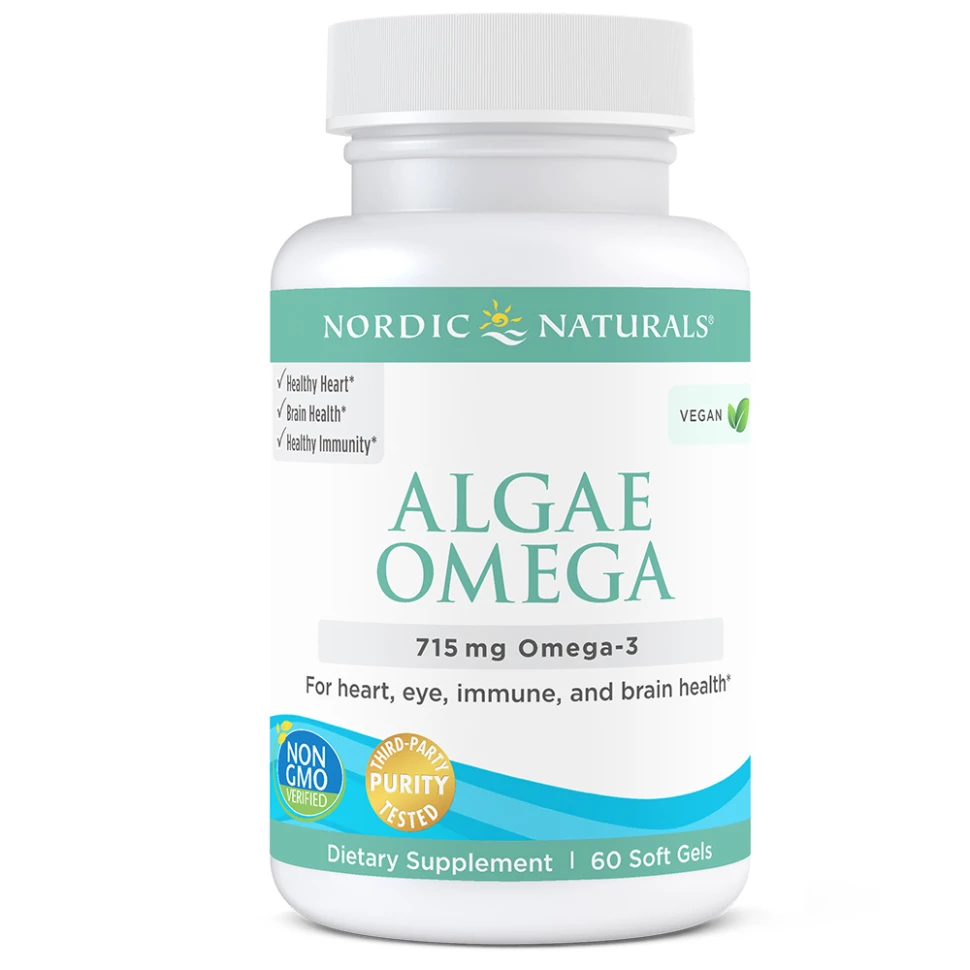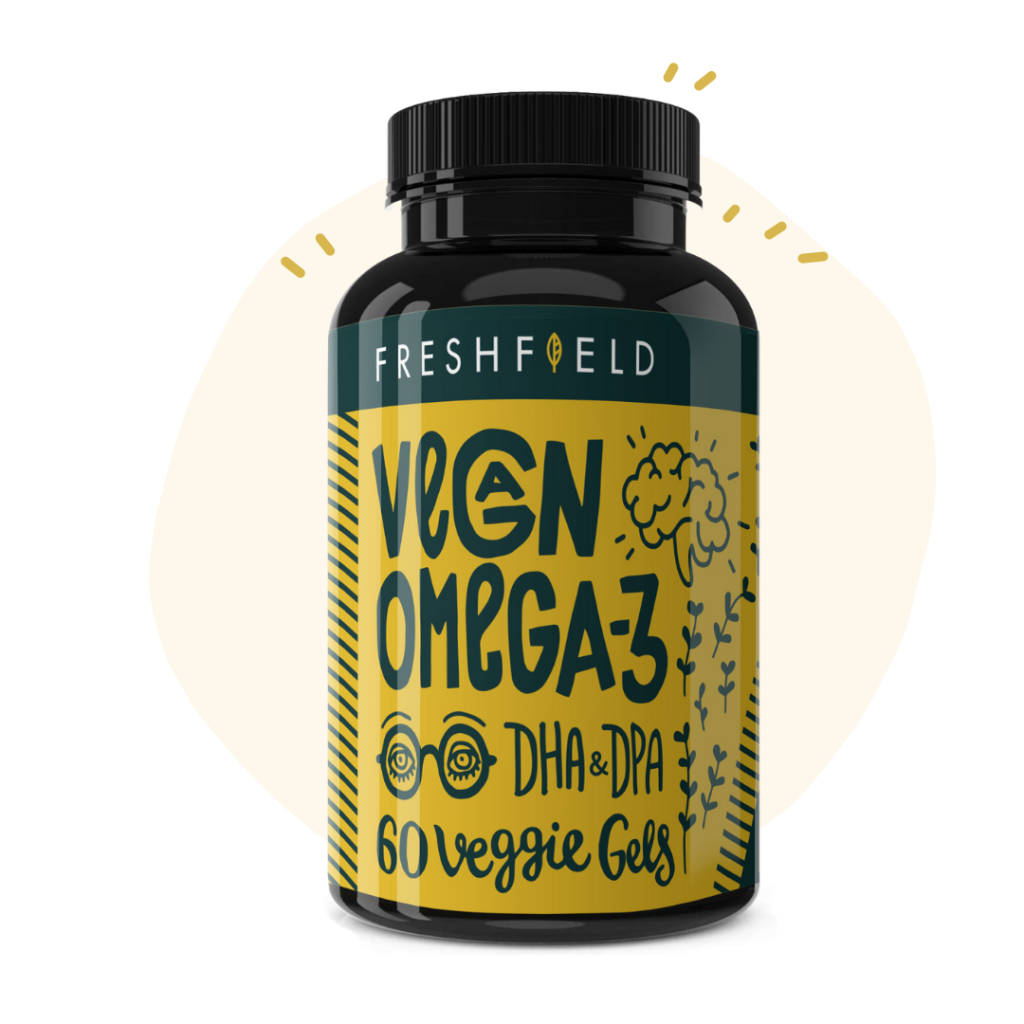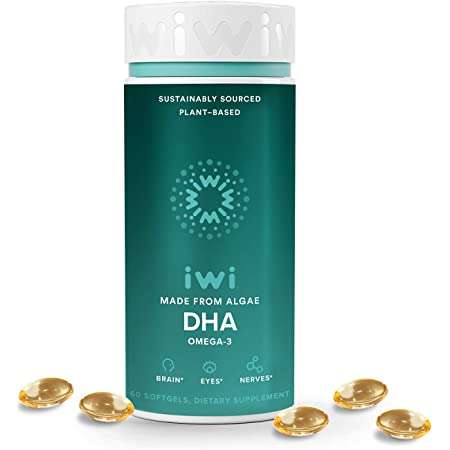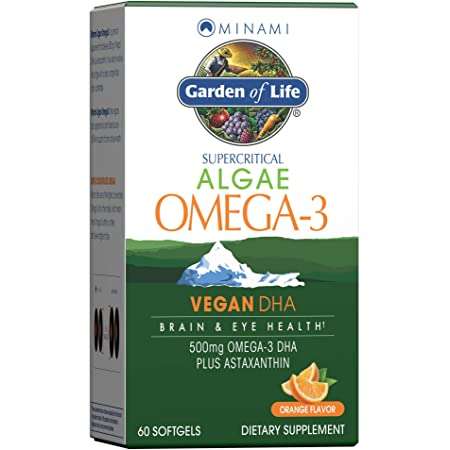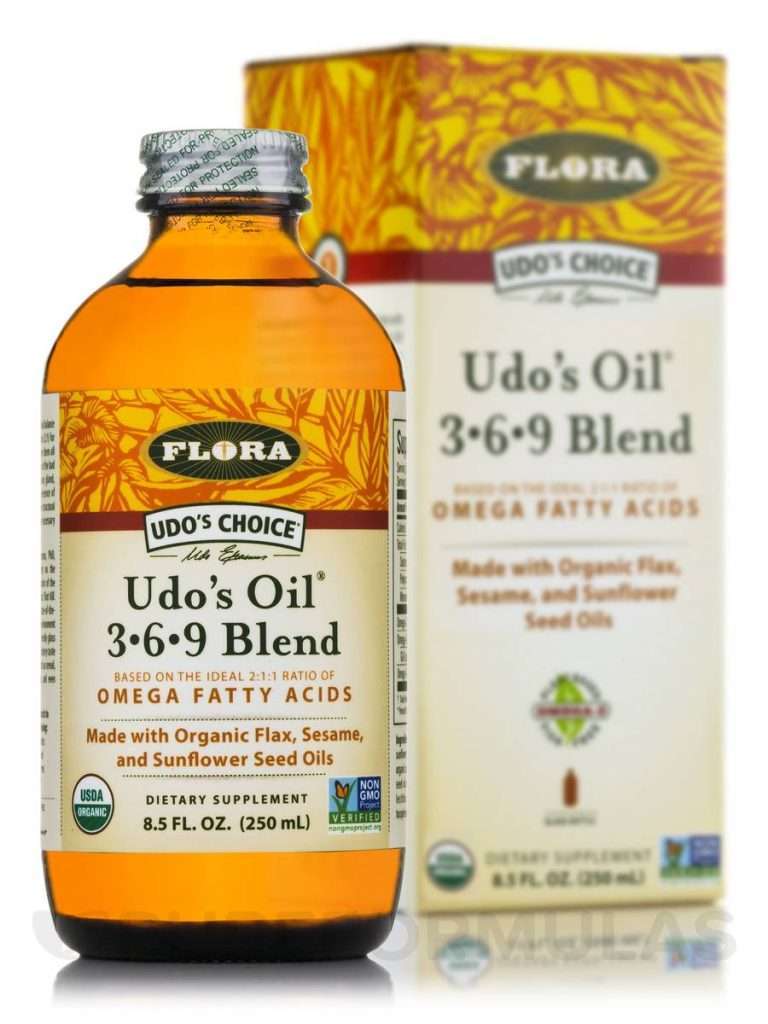With so many benefits to our health, can omega-3 fatty acids also be healthy for the planet? What’s the best sustainable source of omega-3 fatty acids? These options prove the search is over.
The statistics are startling: There are nearly 500 “dead zones” in our oceans; the Great Barrier Reef is on the brink of collapse; fish stocks are at their lower point in history; and much of the oceans’ pollution — an astounding 80 percent, according to UNESCO — comes by way of agricultural run-off, discharge of nutrients and pesticides and untreated sewage including plastic. Experts warn that by 2050 pieces of plastic could outnumber all of the fish in the oceans.
This pressure on our marine environment is making fish more scarce for communities that depend on them as a key food source. It’s also making what’s available more prone to toxicity — heavy metals and microplastics as well as parasites and antibiotics (in the case of farmed fish). Still, fish have long been touted as the healthiest meat — leaner than red meat and pork and one of the most abundant sources of omega fatty acids. We need these fatty acids in our diet to support brain, skin, and joint health and to prevent disease. But relying on fish is no longer the sustainable or healthiest choice. What should we eat instead to get these important fats?
What are omega fatty acids?
There are two major types of polyunsaturated fatty acids recommended for humans: omega-3 and omega-6 fatty acids. These differ from other types of fat common in the diet, such as saturated and monounsaturated fatty acids.
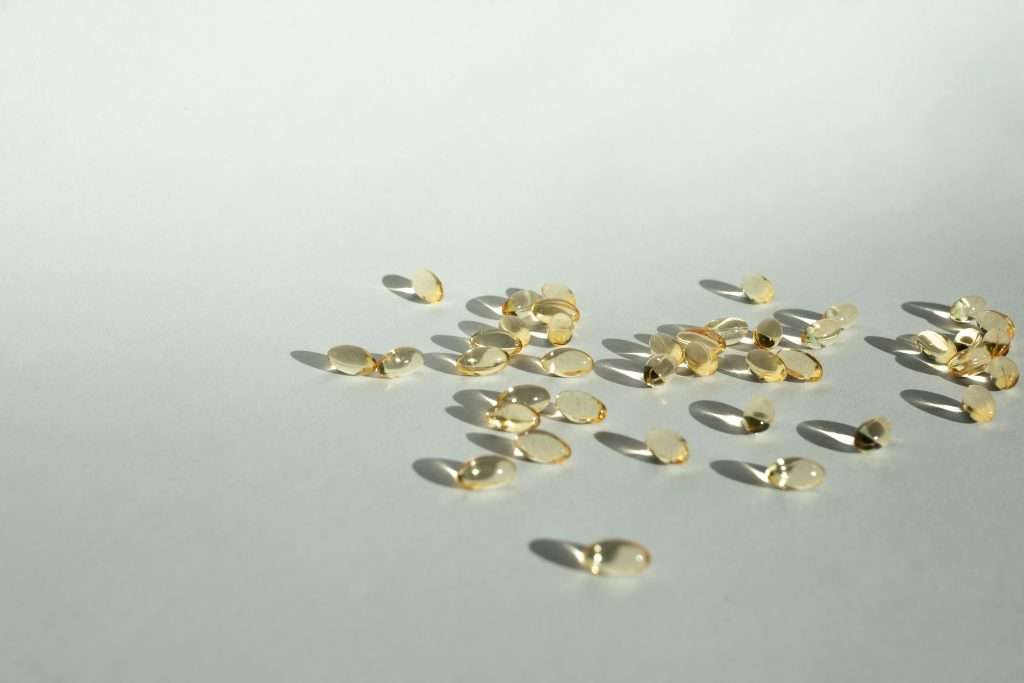
Omega-3 fatty acids, sometimes referred to as “n-3s,” are most commonly found in fish, as well as plant-based sources such as flax seeds. There are three key omega-3 fats: alpha-linolenic acid (ALA), eicosapentaenoic acid (EPA), and docosahexaenoic acid (DHA). ALA is found in flax and chia seeds. You can also find it in dark leafy greens like kale and spinach. EPA and DHA are found in algae and fish oil.
Omega fatty acid benefits
Omega-3 fatty acids “regulate the brain’s functions and help fight off memory decline,” says Vanessa Rissetto, MS, RD, CDN, and co-founder of Culina Health. This makes omega fatty acids even more important as we age. They’re also linked to positive mental health and a reduced risk of depressive symptoms and brain fog.
Studies have also linked higher levels of omega fatty acids in the blood to reduced risk of heart conditions. Even when they’re vegetarian sources, they’re connected to positive cardiovascular, pulmonary, immune, and endocrine functions, too.
Consuming 1,000 to 1,200 milligrams of DHA-rich algae oil daily may help in reducing triglyceride levels by as much as 25 percent, according to clinical studies. A peer review of 13 trials found a connection between omega fatty acid intake and a reduced risk of dying from a heart attack.

Omega fats are also linked to a reduced risk of age-related macular degeneration (AMD) and other eye conditions. A higher intake of EPA and DHA specifically, may prevent or delay onset of AMD. Inflammatory conditions showed positive results with omega fatty acids. Conditions including arthritis, colitis, and asthma, all have shown receptivity to the anti-inflammatory benefits of omega fats.
Like omega-3s, omega-6 fatty acids help to reduce the risk of heart disease, reduce cholesterol levels, and may also help reduce the risk of certain types of cancer. Omega-6 fatty acids are more abundant due to the widespread use of oils such as canola and safflower. Most people who consume a Western diet get plenty of omega-6s. But, often, they don’t get enough omega-3s.
Fish-free omega fatty acids
In the pursuit of healthy omega fatty acids, fish aren’t the only source; one tablespoon of flaxseed oil contains more than seven milligrams of omega fats. An ounce of chia seeds contains about five milligrams. For walnuts, it’s 2.5 milligrams — about the same for whole flax seeds versus the pressed oil.ALA is most prevalent in fatty plant foods such as flax seeds, chia seeds, walnuts, canola, and soybean oils. But when it comes to DHA and EPA, those predominantly come from marine sources.
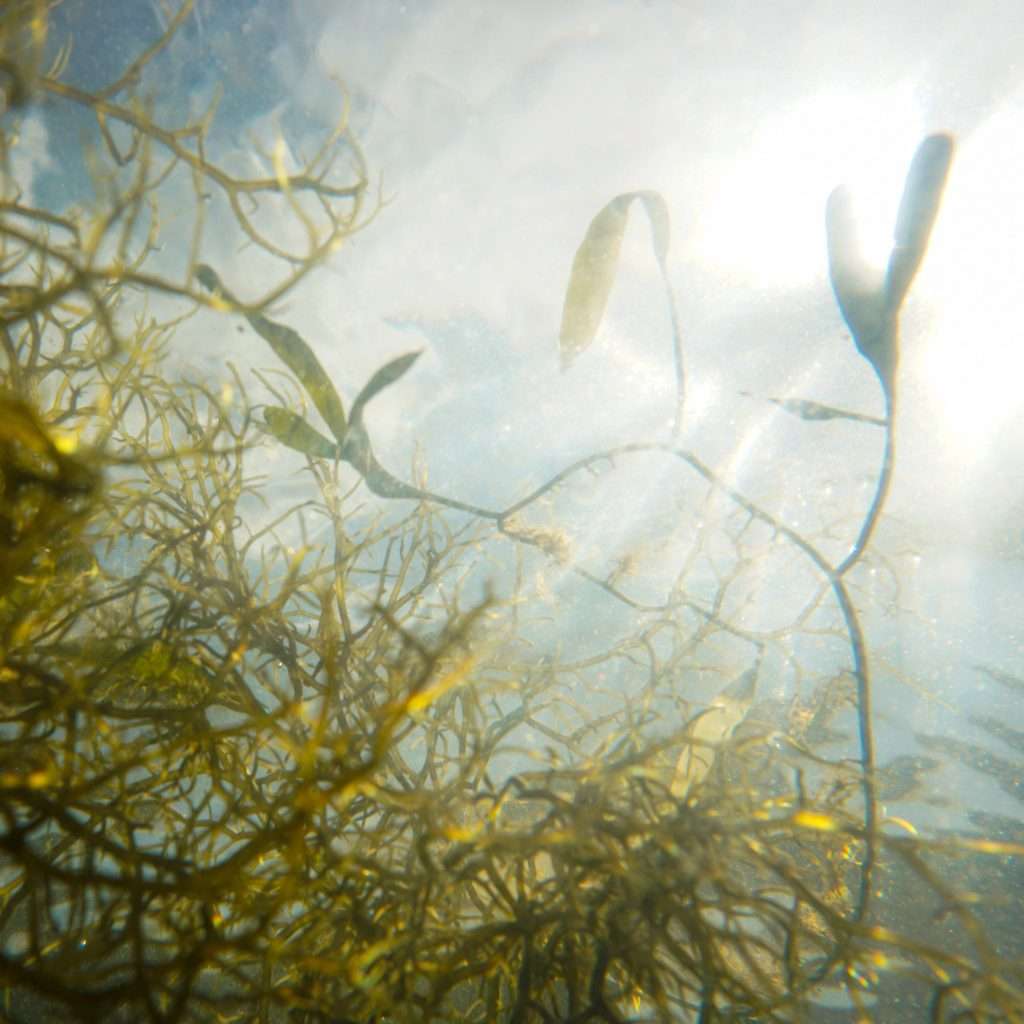
Algal oil
Algae oil — the omega-rich food fish eat to get their omega fats — provides the richest sources of omega-3 fatty acids, including DHA and EPA. And algae happen to be among the most sustainable, too.
Bypassing the fish and going straight to the oil in algae has shown a number of benefits in clinical trials. In one study, the nutrient profile in algae oil proved to be the same as cooked salmon. It also demonstrated a positive impact on blood levels of DHA — the same as fish oil.
Not only is going straight to the source more efficient when it comes to health but algae oil can be grown in controlled settings much easier than fish. Scientists are able to select for omega fatty acid profiles, choosing the most nutrient-dense options. As algae reach maturity faster than fish, this also makes them a more sustainable source for omega fatty acids.
These controlled environments can also mean a cleaner omega fatty acid profile, removing the risk of heavy metals and microplastics, which accumulate in the fats in fish in the wild. While some scientists are replicating the high-omega environments in lab-grown fish without the risk of the toxins, the technology and accessibility are still a long way off.
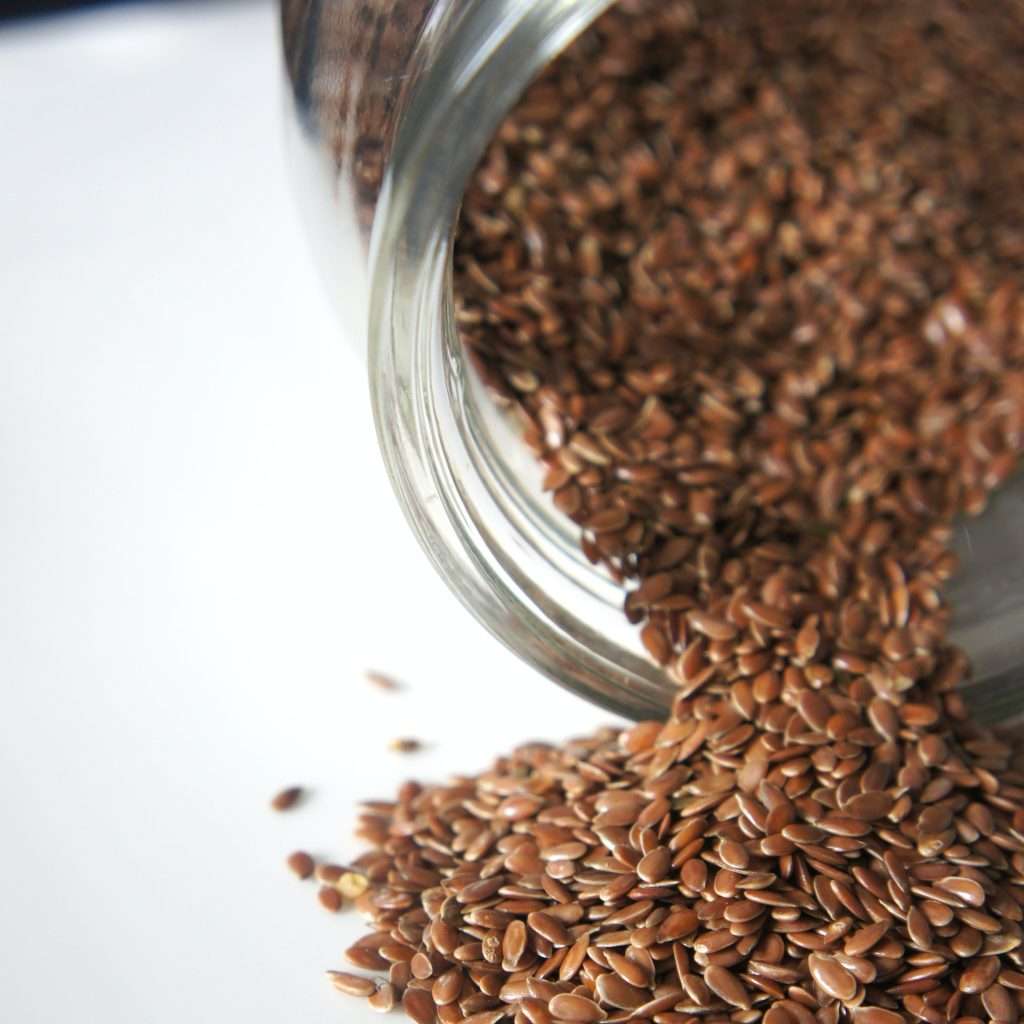
Flax seeds
Second to algae is the tiny flax seed. It’s long been touted as a healthy fish-free source of omega-3 fatty acids. Beyond the seeds for food, the plant is made into fabrics, linseed oil, twines, ropes, and briquettes for heating. Flax is one of the most sustainable crops on the planet. It is grown with less water and pesticide use than cotton, the most heavily sprayed agricultural crop.
Flax is a rare crop in that it doesn’t require irrigation, reducing the water needs and resources involved in crop irrigation. It’s also an easy crop to rotate, leading to improved soil health. The plant is naturally one of the most pest-resistant crops, reducing the need for pesticides. This is also why flax products may be easily certified organic.

Chia seeds
Chia seeds are another sustainable source of omega fatty acids. Like flax, the tiny chia seed requires less water than some conventional crops. It also uses less fertilizer, is no-till, and is a great candidate for crop rotation. Chia is also beneficial to bees and other pollinators as a source of food.
Best sustainable omega fatty acid supplements
It’s not always feasible to get omega-3 fats from diet alone. And, considering the sustainability and health benefits of algal oil, supplements provide superior benefits. Here are the best sustainable omega fatty acid supplements available.
Nordic Naturals Vegan Omega-3
The best-selling vegan algae oil in the U.S., this dietary supplement is derived from microalgae and is rich in EPA and DHA. Known for its fish oils, Nordic Naturals submits everything to third-party testing, surpassing international purity standards. The brand claims it has always been at the forefront of sustainable and ethical practices through science and innovation.
Freshfield Omega-3
This pure marine algae oil supplement adheres to strict quality standards. It also contains DPA oil, which supports EPA efficiency. According to the brand, its mercury-free algal oil is sustainable by reducing the pressures fisheries put on the oceans.
iwi Algal Oil
iwi’s algal oil supplements are made with sustainably farmed algae, and provide 50 percent more absorption than fish oil. According to iwi, its nannochloropsis algae oil is “the only known source in the world that is available in a polar lipid form, with both phospholipids and glycolipids, thus making it highly soluble in water and easily absorbed by the human body.” This means your body is able to absorb more of the oils in iwi and reap the most omega-3 benefits. Sustainably sourced, and available in sustainable paper packaging.
Garden of Life Minami Algae Omega 3 Vegan DHA for Brain and Eye Health
Garden Of Life is a champion of slow manufacturing processes and organic ingredients. It touts a transparency and traceability commitment with all of its products. Its DHA-focused algal supplement boasts a rich source of microalgae. Its climate pledge includes sustainability certifications that help to support the natural world.
Flora – Udo’s Choice, Omega 369 Oil Blend, Brain Health
This liquid blends flax, sunflower, sesame, and evening primrose seeds, with coconut, rice, and bran to deliver a fatty acid-rich supplement that can be added to soups, salads, and yogurt, or taken on its own. Non-GMO, vegan, and bottled in recyclable glass, Udo’s Blend is made exclusively with sustainable, plant-based ingredients and a commitment to quality and supporting certified organic farmers.
Related on Ethos:
All products featured on Ethos have been independently selected by our editorial team.
When you buy something through our links, Ethos may earn an affiliate commission.


